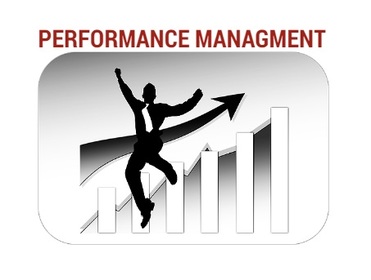 By: Moira du Plessis, sub-committee member, South African Payroll Association The militant and often dreaded appraisal method of evaluating employee performance is facing its demise. Today, performance is measured using a management style that works with employee, team and manager to create a more holistic representation of deliverables and productivity. This is a trend driven by the influx of a younger generation of employee that prefers an open-minded approach in line with the new performance management style. Research also increasingly shows that the successful assessment of employee performance is about coaching, recognition and ongoing discussion. Nowadays its referred to as performance management, a form of one-on-one, two-way communication between manager and employee which helps to fill the gaps. It is a systematic process by which a company involves its employees, as individuals and members of a group, in improving organisational effectiveness in the accomplishment of agency mission and goals. It therefor no longer consists of a meeting between manager and employee where the aforementioned gives scolding feedback on a person’s performance. A changing landscape The difference between the old school appraisal and the modern performance review is down to management and engagement. The former often disempowering staff, leaving them feeling as if they’ve had little opportunity to respond or grow. The latter offers a chance for the employee to create a clear plan for their career path, communicate specific interests and strong points to the manager and potentially focus on how best to utilise these strengths to grow within the company, thus very beneficial in terms of employee growth and satisfaction. The manager can relay where they think the employee’s skills and abilities are best directed and the employee can decide whether or not they agree. For staff who work in payroll, an additional element of the review is to prepare them for the new financial year’s targets. Any performance management system must embrace the value payroll provides to better enable growth and productivity, encouraging staff to use their intellects more and do a wider scope of work. Considering that a significant part of any performance management process is to allow a person to evaluate their own performance and plan their potential for the next three years, the importance of payroll engagement is clear. Globally, payroll is seen as a strategic role, which provides essential insight into management, finance and employee remuneration. If the payroll employee is empowered, they can bring inordinate value to the business. A ripple effect Further important to not is that performance management is far broader than merely assessing a person’s achievements throughout the year. A manager can impact on the performance of their teams by being productive, proactive and fair, creating a ripple effect in terms of leadership and setting standards. It is also important from a management point of view to treat everyone in a company the same, that way all persons at all levels feel valued and this improves employee morale and loyalty, therefore leading to increased performance. In addition, taking care of employee hiring wellness is not only beneficial in terms of retention, loyalty and productivity, it is becoming a defining factor when it comes to and attracting talent – if employees feel cared for on all levels beyond just work, they also perform better. A positive work atmosphere with constructive performance review parameters and long-term support benefits employee, business and bottom line. ENDS MEDIA CONTACT: Idéle Prinsloo, 082 573 9129, [email protected], www.atthatpoint.co.za For more information on SAPA please visit: Website: http://www.sapayroll.co.za/ Twitter: @SAPayroll LinkedIn: The South African Payroll Association
0 Comments
|
Welcome to the South African Payroll Association newsroom.
Archives
July 2020
Categories
All
|

 RSS Feed
RSS Feed